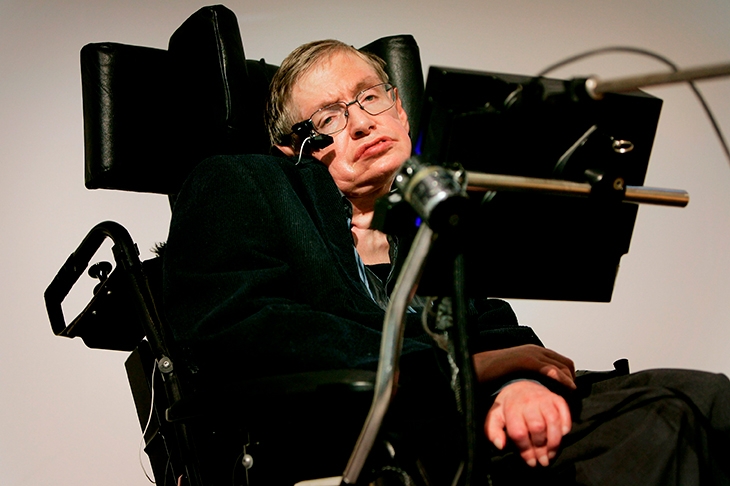I could never muster much enthusiasm for the theoretical physicist Stephen Hawking. His work, on the early universe and the nature of spacetime, was Nobel-worthy, but those of us outside his narrow community were horribly short-changed. His 1988 global bestseller A Brief History of Time was incomprehensible, not because it was difficult but because it was bad.
Nobody, naturally, wanted to ascribe Hawking’s popular success to his rare form of motor neurone disease, Hawking least of all. He afforded us no room for horror or, God forbid, pity. In 1990, asked a dumb question about how his condition might have shaped his work (because people who suffer ruinous, debilitating illnesses acquire compensating superpowers, right?), Hawking played along: ‘I haven’t had to lecture or teach undergraduates, and I haven’t had to sit on tedious and time-consuming committees. So I have been able to devote myself completely to research.’
A Brief History of Time was outdated before it hit the shelves. It couldn’t even get the age of the universe right
The truth — that Hawking was one of the worst popular communicators of his day — is as evident as it is unsayable. A Brief History of Time was incomprehensible because after nearly five years’ superhuman effort, the author proved incapable of composing a whole book unaided. He couldn’t even do mathematics the way most people do it, by doodling, since he’d already lost the use of his hands. He could not jot notes. He could not manipulate equations. He had to turn every problem into a species of geometry, just to be able to think about it. He held his own in a rarefied profession for years, but the business of popular communication was beyond him. As was communication generally, in the end. According to Hawking’s late collaborator Andy Strominger: ‘You would talk about words per minute, and then it went to minutes per word, and then, you know, it just got slower and slower until it just sort of stopped.’
Hawking became, in the end, a computerised patchwork of hackneyed, pre-stored utterances and responses.








Comments
Join the debate for just £1 a month
Be part of the conversation with other Spectator readers by getting your first three months for £3.
UNLOCK ACCESS Just £1 a monthAlready a subscriber? Log in